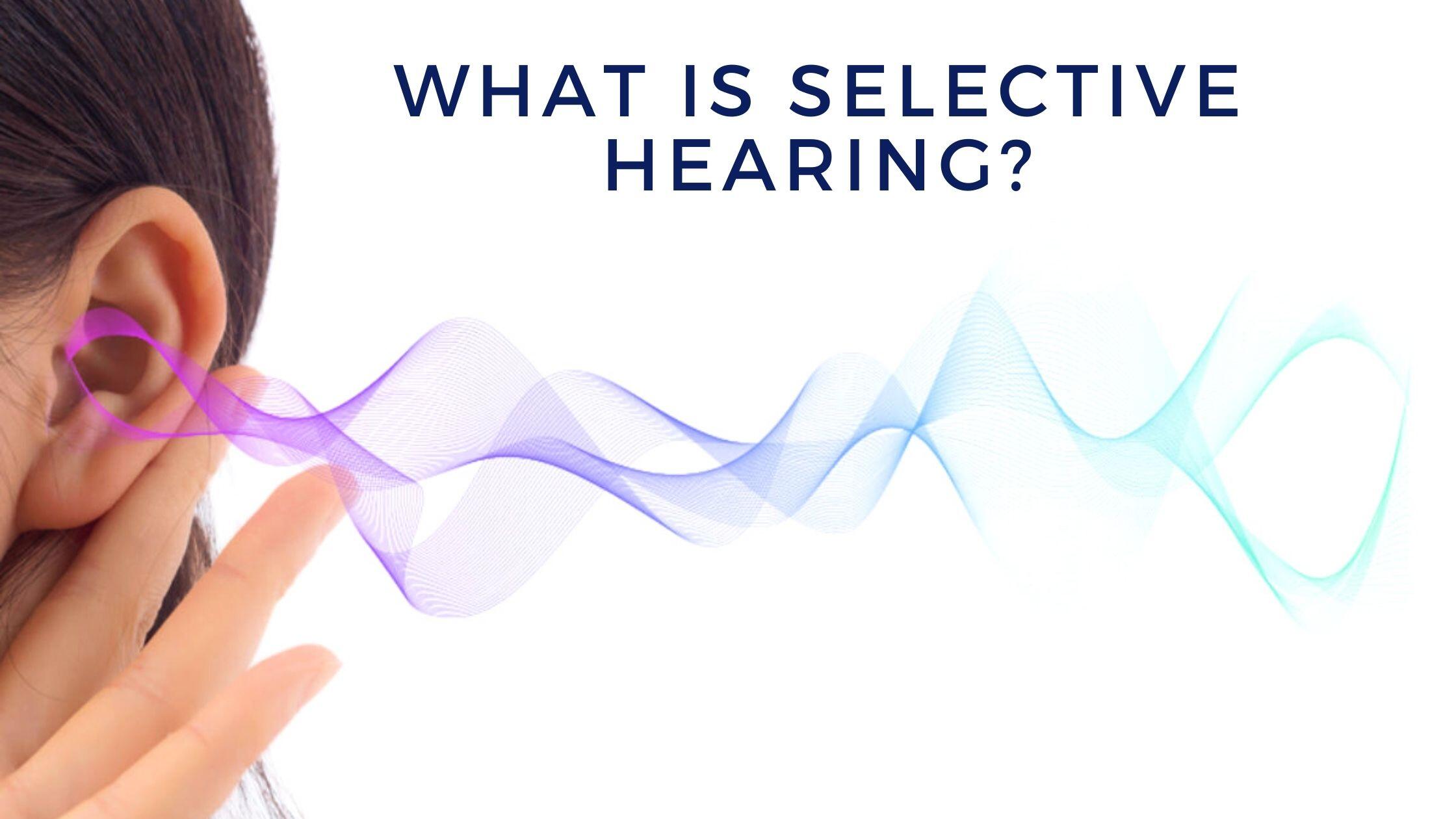Have you been accused of having selective hearing?
If so, you are not alone. It is not your fault that those around you accuse you of having selective hearing.
The aim of this article, is to provide answers to the following questions:
- What is selective hearing?
- What is the cause?
- What is the solution?
Most of us think about selective hearing as hearing only what we want or choose to hear. Or hearing only what is important to us.
Another definition is the ability to focus our attention in order to listen. This focused listening is complex. First it requires hearing that is within the normal range of hearing acuity. This means that we are able to hear all sounds of speech. Second it requires higher areas of the brain that are responsible for the filtering of unwanted information, such as noise, or distracting sounds.
When we have even a very mild hearing loss selective hearing will automatically take place. A mild hearing loss or a hearing loss that affects only high frequencies or pitches is a common type of hearing loss and is often responsible for selective hearing.
When you are not hearing soft high pitched sounds, your brain must work overtime to attempt to fill in possibilities. This overtime pulls from other resources that aren’t typically used for hearing such as memory, processing of conversation and the ability to focus on the speaker. This manifests as an increase in effort in listening, difficulty in hearing in background noise, and the sense that everyone is speaking too quickly, rapidly, not speaking clearly, or distinctly and listening fatigue. Decoding of information should be effortless. When listening requires effort it is time to have your hearing evaluated.
The link between dementia and hearing loss has been well researched. The research indicates that a mild hearing loss has been linked to a 1.8x greater risk of developing dementia, a moderate hearing loss has a 3.9x greater risk and a severe loss has a 5x greater risk of developing dementia. In our clinic, San Francisco Hearing, we have found that most people we see have been accused of having selective hearing for some time. Listening has become more difficult, requiring more effort, especially in noise. Many times we lose confidence in our ability to hear accurately, or process quickly.
The first step is a diagnostic evaluation from one of our Doctors of Audiology. This test will determine if you have hearing sensitivity that is within normal limits. If a hearing device is needed our providers will ensure that you are fit with a device that is customized to your individual needs and programmed using best practices to ensure that listening becomes easier!


